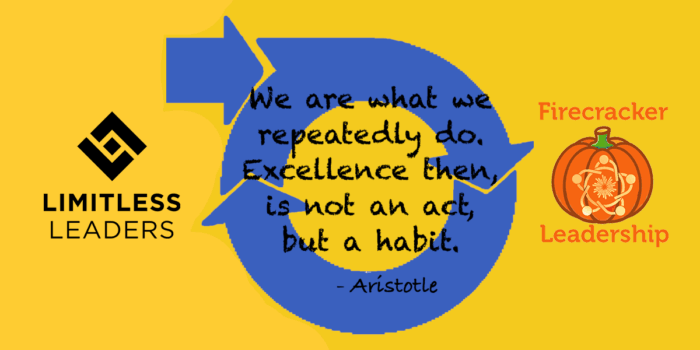It’s up to senior leadership to make climbing the ladder look attractive and that includes balance and boundaries for life.
Deijha Martin, 26 years old, works as a data analyst from her Bronx, N.Y., apartment. On workdays, she’ll chip away at a task until 5:10 p.m. or 5:20 p.m., but never 6 p.m. She loves travel, and earlier this year tapped her company’s unlimited vacation policy to jet to Greece and France.
Having boundaries is a priority, but make no mistake: She’s plenty ambitious.
“I definitely do want to make money,” she says, so that she can fund the things she loves to do. “It’s just, not really fighting with anyone to get to the top.”
The pandemic’s shake-up of work and life has had lasting effects on ambition for a lot of women. For some, the last years have prompted a reassessment of how much they’re willing to give to their careers at the expense of family time or outside interests. For others, many of them younger professionals, seeing the ways other leaders have allowed work to subsume their lives is a turnoff. And after a spell of workplace flexibility few would have imagined before 2020, many women are now asking the question: Can you get ahead and still have a life?
“The company’s not hinging on your ability to answer an email at 11 o’clock p.m.,” says Alexis Koeppen, a 31-year-old technology worker in New Orleans. “The work will always be there for you.”
She quit an intense consulting job in Washington, D.C., moved to New Orleans to be with her boyfriend and switched to a remote role that gives her time to walk her dog, a pandemic addition, and exercise. Instead of taking on extra work, she’s leaning into trips with friends, weddings, parties. “We didn’t get to for so long,” she says.
Plenty of men are rethinking their relationship with work, too. Women face a particular combination of pressures and penalties at home and on the job. They shoulder far more housework and child care, according to government data, and research shows colleagues perceive them as less committed to their jobs when they become pregnant.
Getting ahead without being always-on might be a hard ask.
“The workplace is still designed for people where work is the number-one priority all the time,” says Ellen Ernst Kossek, a management professor at Purdue University who studies gender and work.
Workers who make themselves constantly available receive better performance evaluations, more promotions and faster earnings growth, adds Youngjoo Cha, a professor of sociology at Indiana University Bloomington. The current economic moment, marked by inflation and the threat of recession, makes the idea of pulling back at work risky yet enticing.
“You think, ‘Are they going to think I’m not a team player?’ Or not come back to me with opportunities, or think I’m ungrateful?” says Kim Kaupe, the Austin, Texas-based co-founder of a marketing agency. She has constructed an email template, which she fires off at least once a month, declining new work opportunities to preserve time for her personal life. Still, she worries.
“I hope they know that I’m still ambitious,” Ms. Kaupe, 37, says of her clients and people reaching out with new opportunities. “But I don’t know.”
‘The company’s not hinging on your ability to answer an email at 11 o’clock p.m.’
— Alexis Koeppen, a 31-year old technology worker
Ms. Koeppen says she once aspired to reach the C-suite, but seeing top management up close changed her mind. “I don’t want to be those people,” she says. “They don’t seem happy to me.”
Almost two-thirds of women under 30 surveyed by McKinsey & Co. and LeanIn.Org, the nonprofit founded by Sheryl Sandberg, say they would be more eager to advance if they saw senior leaders who had the work-life balance they desire. A good number of senior women leaders themselves aren’t happy either. About 43% of female leaders say they are burned out, the survey data show, as compared with 31% of male leaders.
While some younger women seek a finite workday, baby boomers and Gen Xers wonder whether they could have done things differently and still gotten ahead.
“I don’t know that I did it the right way,” says Jory Des Jardins, a 50-year-old marketing executive, who describes dropping everything for her career and delaying a family until her late 30s.
A co-founder of BlogHer, an online community for women, she spent years traveling frequently for work, transporting her breastmilk home to the San Francisco Bay Area after she had two daughters at age 38 and 40. Her husband paused his career to stay home.
“We wanted to show women it could be done and that we could run a business,” she says of the BlogHer leadership. “We didn’t want to disappoint.”
Ms. Des Jardins eventually sold her company, and tried to dial back professionally. But she had set a precedent as an all-in worker. The opportunities that came her way required flying to New York every week and prioritizing an investor meeting over all else.
The pandemic gave her a chance to derive comfort from her family instead of achievements, to unapologetically embrace her whole life, she says. Now she’s wondering, what next?
“If you’re not integrating your life along the way, you kind of have an identity crisis later,” says Ms. Des Jardins, who now works for a startup. “Would it have been that awful if we had taken a little time? Would we have completely taken a step back? I don’t think so. But that was a bet that we weren’t going to take.”
Loria Yeadon, a lawyer who rose to be chief executive of the YMCA of Greater Seattle, still remembers the moment 15 years ago when, rushing to her child’s kindergarten-graduation ceremony, her company’s general counsel rang. Ms. Yeadon said she had 10 minutes to talk. The conversation stretched for an hour.
She didn’t hang up the phone. “I didn’t feel the freedom to do it,” she says.
She made it to her daughter’s ceremony, but spent the beginning still on the call in the back of the room. Looking back, she wishes she had hung up the phone.
“I think today I would just throw it to the wind and trust that there would be another job, or that I’d be fine where I am,” she says. “That I could still have the career I longed for.”
Write to Rachel Feintzeig at Rachel.Feintzeig@wsj.com



